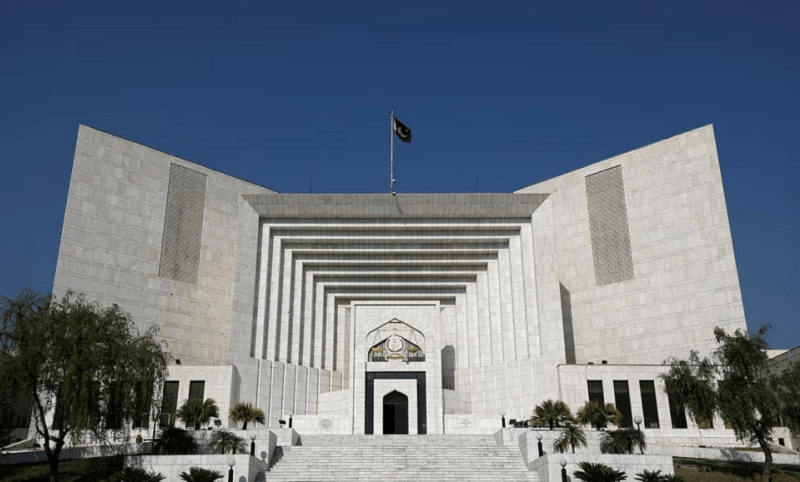Islamabad (Web Desk): The Supreme Court (SC) on Friday set aside the removal from service of former Islamabad High Court (IHC) senior puisne judge Shaukat Aziz Siddiqui.
A five-member bench — led by Chief Justice of Pakistan (CJP) Qazi Faez Isa and comprising Justice Aminuddin Khan, Justice Jamal Khan Mandokhail, Justice Hasan Azhar Rizvi, and Justice Irfan Saadat — announced its reserved verdict on Siddiqui’s plea against his removal.
In a 23-page written order, authored by Chief Justice of Pakistan Qazi Faez Isa, the apex court noted, “The SJC’s Report/Opinion, dated 11 October 2018, which was submitted to the President and the Notification No. F.9(2)/2018-A.II, dated 11 October 2018, stated to have been issued on the advice of the Prime Minister and his Cabinet of Ministers are set aside. Consequently, Justice Siddiqui shall be deemed to have retired as a Judge of the Islamabad High Court and he will be entitled to receive all the benefits and privileges due to a retired Judge, by allowing these petitions in the above terms.”
It further maintained that “Justice Siddiqui had undoubtedly levelled very serious allegations against General Faiz Hameed, who was then serving in the Inter Services Intelligence (‘ISI’), and a few of his subordinates in the ISI who he accused of manipulation of certain sensitive cases in the Islamabad High Court and in the Accountability Court, which was under the jurisdiction of the Islamabad High Court. However, Justice Siddiqui was not given an opportunity to establish his allegations nor brought face to face with those he had accused.When we noted this lapse we issued notices to all those against whom he made allegations and provided them with an opportunity to admit/deny them. All of them have denied their stated involvement.
“Therefore, it was all the more necessary for the SJC to have inquired into the matter and to have determined who was telling the truth. The SJC did not give any credence to Justice Siddiqui’s own words and to the contents of his replies; the SJC assumed that they were false; and having made this assumption concluded that Justice Siddiqui was guilty of misconduct. It would be difficult to categorize such a determination as fair or one which accorded with the requirements of due process. Justice Siddiqui was not given an opportunity to establish the veracity of his allegations, which was incumbent on the SJC when the same formed the basis of Justice Siddiqui’s removal from office. The Fundamental Rights enshrined in the Constitution include the right to a fair trial and due process (Article 10A) and all citizens, including Judges, must be dealt with in accordance therewith. However, Justice Siddiqui was deprived of his Fundamental Rights of fair trial and due process. Article 209 does not stipulate that in determining whether a Judge is guilty of misconduct he is denuded of the Fundamental Rights nor permits the SJC to act contrarily to them.”
The proceedings of the case were broadcast live on the apex court’s website.


